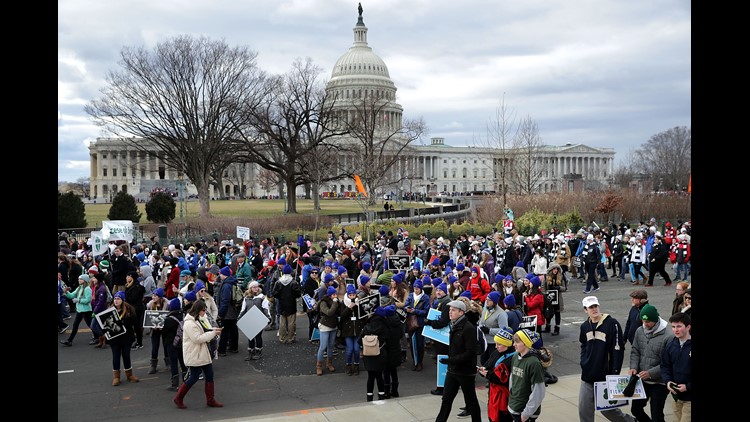Vice President Pence greeted anti-abortion activists Thursday night on the eve of the March for Life, saying President Trump has "made a difference for life" in his first year in office.
On Friday, Trump will become the first president to directly address the 45-year-old anti-abortion protest march. Previous presidents — including Ronald Reagan and George W. Bush — have done so with a phone call or recorded message. Trump will do it in the White House Rose Garden.
It's part of an effort by the Trump administration to show off its anti-abortion credentials as the 45th anniversary of the Supreme Court's 1973 ruling in Roe v. Wade approaches next week.
Trump's own history on the issue is complicated. In 1999, he called himself "very pro-choice." Declaring his his anti-abortion credentials in his presidential campaign, he bucked the movement's orthodoxy by saying women who obtain abortions should be punished.
But on Thursday, Pence called Trump "the most pro-life president in American history."
He boasted of a litany of anti-abortion measures by the Trump administration over its first year: Banning federal funds for global health groups that promote abortion under the "Mexico City policy," defunding the United Nations Population Fund, and overturning an Obama administration rule that required states to provide funding for Planned Parenthood.
"You made that happen. Your efforts over the years, over the decades, standing tirelessly for the sanctity of life, has brought this day about, this year about," he said.
Also Thursday, the Trump administration announced that it would support the rights of health care workers who object to abortion, birth control or sex-change operations based on their religious convictions.
Pence predicted that Republican majorities in Congress and Trump in the White House would lead to a watershed moment in the coming years.
"I truly believe, with all of my heart, this is the pro-life generation in America," Pence said. "And I truly believe, in this generation, we will restore the sanctity of life to the center of American law once again."



